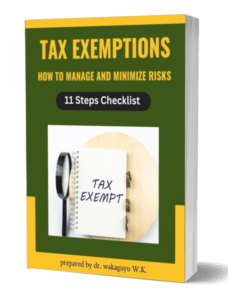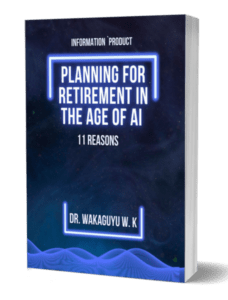Taxing the betting, gaming, and lotteries industry is not new in Kenya. However, we need to ask ourselves whether the industry should exist or even levy taxes on the industry activities. Activities in the betting, lotteries, and gaming industry directly or indirectly affect most businesses in Kenya.
Since the government realized the industry is tax-productive, we have witnessed various tax changes over the years. Almost every year, during the national budget reading, there are proposals to increase tax rates in the betting industry.
Affiliate Disclosure: This post may contain affiliate links – I may receive a small commission if you purchase through links, at no extra cost to you. Read HERE.
During the recent Kenya national budget reading, the government had proposed an increase in tax rates across betting, lotteries, gaming and competition activities. Luckily, the Finance Bill died a premature death (we pray).
Various stakeholders have over the years presented proposals to the parliament. For example in 2016, there were proposals presented to the Parliaments Labour and Social Welfare Committee on Betting, Lotteries and Gaming Amendment Bills (2016). Any Kenyan, including members of parliament, can sponsor a Bill.
The National Treasury expects the tax commissioner to advise on tax changes based on experiences in the tax fields. Sometimes, the advice is not to increase the tax rates but to lower the tax rates.
In the budget of 2017/2018, the then KRA Commissioner General had advised against tax increases in the industry because of three reasons:
a. Experiences of tax increases in industries with a large informal sector similar to betting activities had been counterproductive since the conduct of the activities disappeared underground, and taxing them became impossible.
A good example is cheap alcohol, where increasing taxes resulted in a drop in sales in the formal sector, but people continued to get drunk.
b. The industry had contributed immense tax revenue (kshs 4.7 billion in 2014/2015 and 2015/2016 from only 25 licensed betting companies).
c. The industry has resulted in a widening of the tax base.
A few days later, the Kenya Budget Office weighed in with proposals to increase the tax rates for betting, lotteries, gaming and competition activities in the country. This became a game of theories and practice. It is difficult to win.
Benefits and Negative Effects of the Betting, Gaming, and Lotteries Industry
Every coin has two sides. We need to ask whether there are any benefits to the country from this industry. To fully answer the question, we must also inquire about the industry’s effects on the country.
Balancing the benefits and negative effects is crucial for policymakers to ensure that the betting, lotteries, and gaming industry contributes positively to society while minimizing its potential harms.
Let us start with the benefits.
Benefits of the Betting, Gaming, and Lotteries Industry
There are many benefits, but we will only examine seven benefits.
a. Economic Growth and Employment
Betting, Gaming, and Lotteries industry have created many jobs directly in the betting shops, casinos, and online platforms. It has also created jobs indirectly in associated sectors like hospitality and marketing. It also contributes to economic growth through increased spending and investments.
b. Tax Revenue
The government has generated substantial revenue through taxes on betting, gaming and lotteries industry. Public services such as healthcare, education, and infrastructure development have benefitted from the government’s use of the revenue.
c. Tourism Boost
Casinos and gaming events can attract tourists, boosting local economies and increasing spending in other areas such as hotels, restaurants, and retail. There are many casinos on the coast and in Nairobi.
d. Entertainment and Leisure
Betting and gaming also provide entertainment and leisure options for many individuals. This contributes to a more diverse range of recreational activities in the country.
e. Funding for Good Causes
Betting, Gaming and Lotteries often allocate a portion of their revenue to charitable causes, community projects, and sports funding, benefiting society at large. This is an act towards their corporate social responsibility activities.
f. Technological Advancements
In the recent past, we have witnessed a lot of changes and innovations. Betting, the Gaming and Lotteries industry drives technological innovation, particularly in online gaming and mobile platforms, leading to advancements that can spill over into other sectors.
g. Financial Inclusion
Betting, Gaming and Lotteries industries can provide opportunities for financial inclusion, allowing people to engage in low-cost, high-reward activities that may offer significant returns. We have witnessed people from all walks of life winning big.
Negative Effects of the Betting, Gaming and Lotteries Industry
It is not always beneficial. There are also negative effects of the Betting, Lotteries, and Gaming Industry on the country. Every Kenyan needs to know about the negative effects because you may take part in the activities, a family member, a relative or a community member.
There are many negative effects, but let us look at seven effects.
a. Gambling Addiction
Gambling addiction is a major downside which can lead to financial ruin, mental health issues, and strained relationships with friends, family, relatives, etc. Addiction is addiction irrespective of what the activity is. Treating addiction is expensive for the individual, family, community, and country.
b. Social Costs
Betting and gambling can cause increased social costs, such as unemployment, higher rates of crime, and dependency on family, relatives, and social welfare. This can be a burden to the family, relatives, public services, etc.
c. Economic Inequality
Betting and gambling can be like a carrot on a stick. Participants hope for a higher win the next day. Thus, the industry can exacerbate economic inequality. Lower-income individuals may disproportionately spend more on betting and gaming, hoping for big financial gains which may never materialise. Ultimately, they will end up in financial ruin.
d. Family and Community Disruption
People are members of families, communities etc. Gambling addiction takes people away from their families, relatives, etc. This can lead to domestic violence, family breakdowns, and neglect of personal and community responsibilities. This is likely to cause widespread family and community disruption.
e. Money Laundering
Money laundering is a vice. Money launderers can easily take advantage of the betting and gaming industry for their illegal activities. This poses risks to legal compliance and financial systems in the country.
f. Negative Impact on Productivity
Sometimes, researchers have established that excessive gambling can cause a decrease in productivity at work and in other areas of life. This is because of a lack of focus, absenteeism, and the time spent on betting and gambling activities instead of productive work.
g. Health Issues
Studies show that betting and gambling activities play a role in the development of mental health problems, such as anxiety and depression. However, the problems can also lead to physical health issues because of stress and neglected personal health and well-being.
Having examined the benefits and negative effects of betting and gambling activities, should the government tax the industry? The government is already doing it through ‘Sin’ tax.
“Sin“ Tax
Recently, betting and related activities have spread in this country like bushfires. Many people have ambitions of becoming millionaires overnight and think betting affords them the opportunity. They spend hours trying to hone their betting strategies. Meanwhile, they stop working hard in productive activities such as marketing, accounting, farming, etc.
To discourage the populace from engaging in betting and related activities, the government imposes punitive tax rates, often referred to as the ‘sin’ tax. Alcohol and cigarettes also have a ‘sin’ tax as a high domestic excise duty.
To many people, betting, lotteries, gaming and competition activities are undesirable activities in society, depending on who is looking at them. This is because of the supposed high potential of negative effects on the population productivity and health of those who engage in the activities, especially the youth.
Besides, there is no productive work that goes into betting and related activities. People think that the easy money from winnings promotes laziness in society.
In other cases, some participants get addicted to betting and related activities. Rehabilitating people, whether betting and related activities addicts or other forms of addiction, is never a simple affair. The country would be required to put up more rehabilitation institutions for betting and related activities addicts.
Sometimes, the outcomes of betting activities have resulted in extreme reactions by some participants, including cases where people have committed suicide, others have stolen from their families, girlfriends, boyfriends and families broken.
Hence, the authorities enforce high tax rates in the betting and related activities industry to protect society by discouraging participation in the industry.
Income Taxation
According to the Income Tax Act Cap 470 Section 3(2)(a)(i)(a), individuals are required to pay income tax on all incomes that accrue in or are derived from Kenya. Hence, any winnings in betting and related activities are subject to income tax.
The Cabinet Secretary (CS) when reading the budget, proposed taxation of the winnings. Regardless of whether it is from betting, lotteries, gaming, or competition, the Cabinet Secretary (CS) proposed taxing a certain percentage of the winnings. Betting and related activities businesses have little to lose, except for discouraging a few people with low returns.
But the businesses should take heart and realize that people do not get involved in betting activities because the tax rates are low but because they want easy money. Most of the people involved in betting and related activities may not even know the implications of the tax rates, let alone what income tax is.
Sports Sponsorship
Betting and related activities businesses have been involved in sponsoring sporting activities, especially football, in Kenya and elsewhere. They do this largely for marketing and taxation purposes. Some companies sponsor football leagues and clubs in Kenya and the UK disguised as part of their corporate social responsibility, but of course, it is for marketing.
Many betting companies have used sponsorship activities as a campaign consideration for lower tax rates in the industry. Often, the companies advocate against increasing the tax rates because, among many reasons, they sponsor sports in the country. But it seems the government has an answer for every complaint: seek tax exemption if tax is affecting their sports sponsorship.
Tax Exemptions
In Kenya, the parent ministry forwards any applications for tax exemption to the tax commissioner. With tax exemption for sports sponsorships, the concerned companies should seek tax exemptions through the Ministry of Sports. This is the rule for everyone in the country. The government cannot deny the companies such exemptions considering the important role sports play in the country.
The Bills
This country has various Acts of Parliament which emanate from Bills in Parliament. As the betting and related activities industry continues to grow, we are yet to see the many betting, lotteries and gaming Amendment Bills proposing various changes to the industry. We encourage more bills to streamline the industry.
Should the industry be taxed?
Yes, it should as dictated by the requirements under the Income Tax Act Cap 470, the Excise Duty Act, 2015. However, the policy makers must be careful because of the potential for industry activities be conducted under the radar of the tax commissioner.
Thank you for reading the article. Let us know your thoughts in the comments section.
Dr. Wakaguyu







